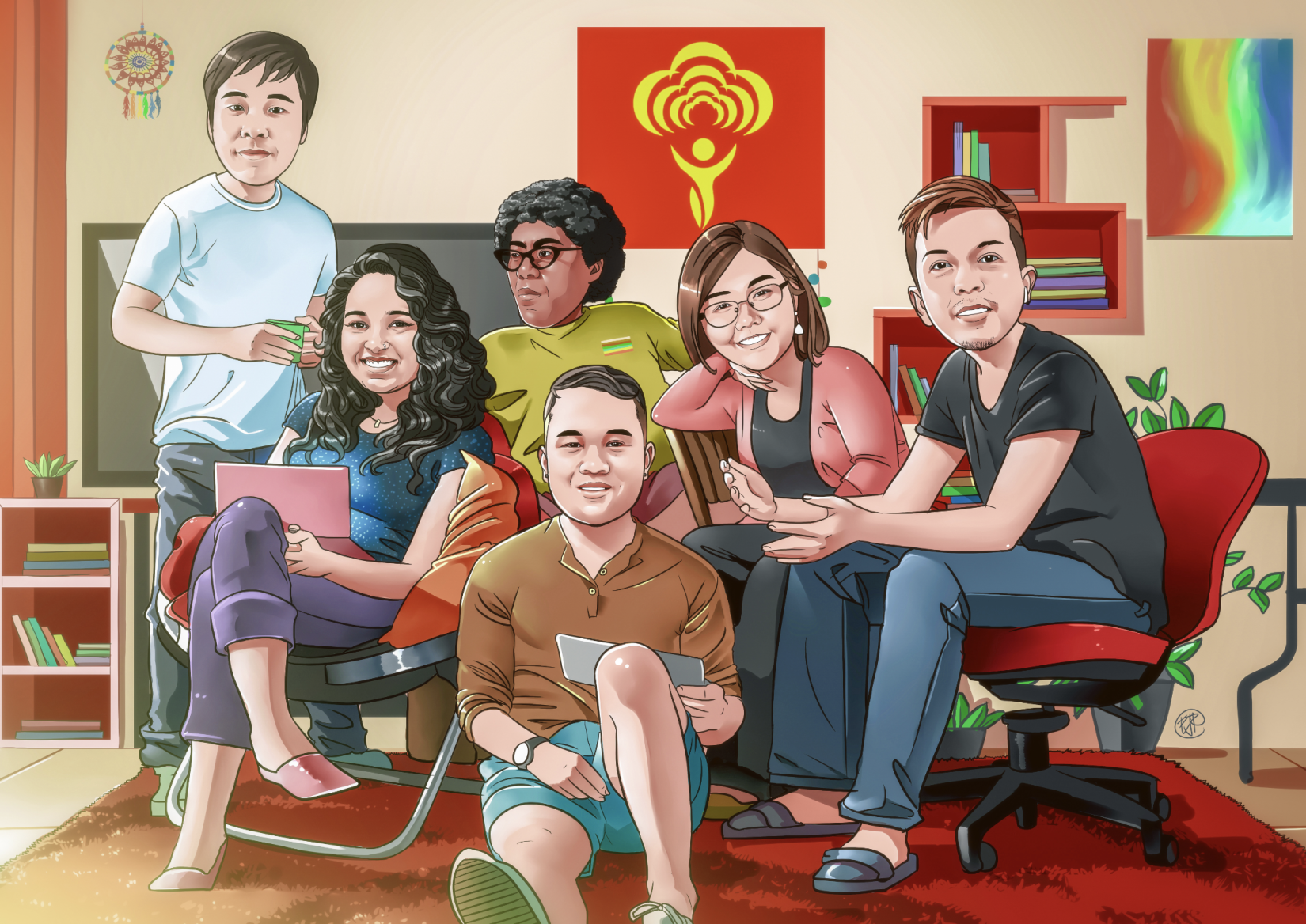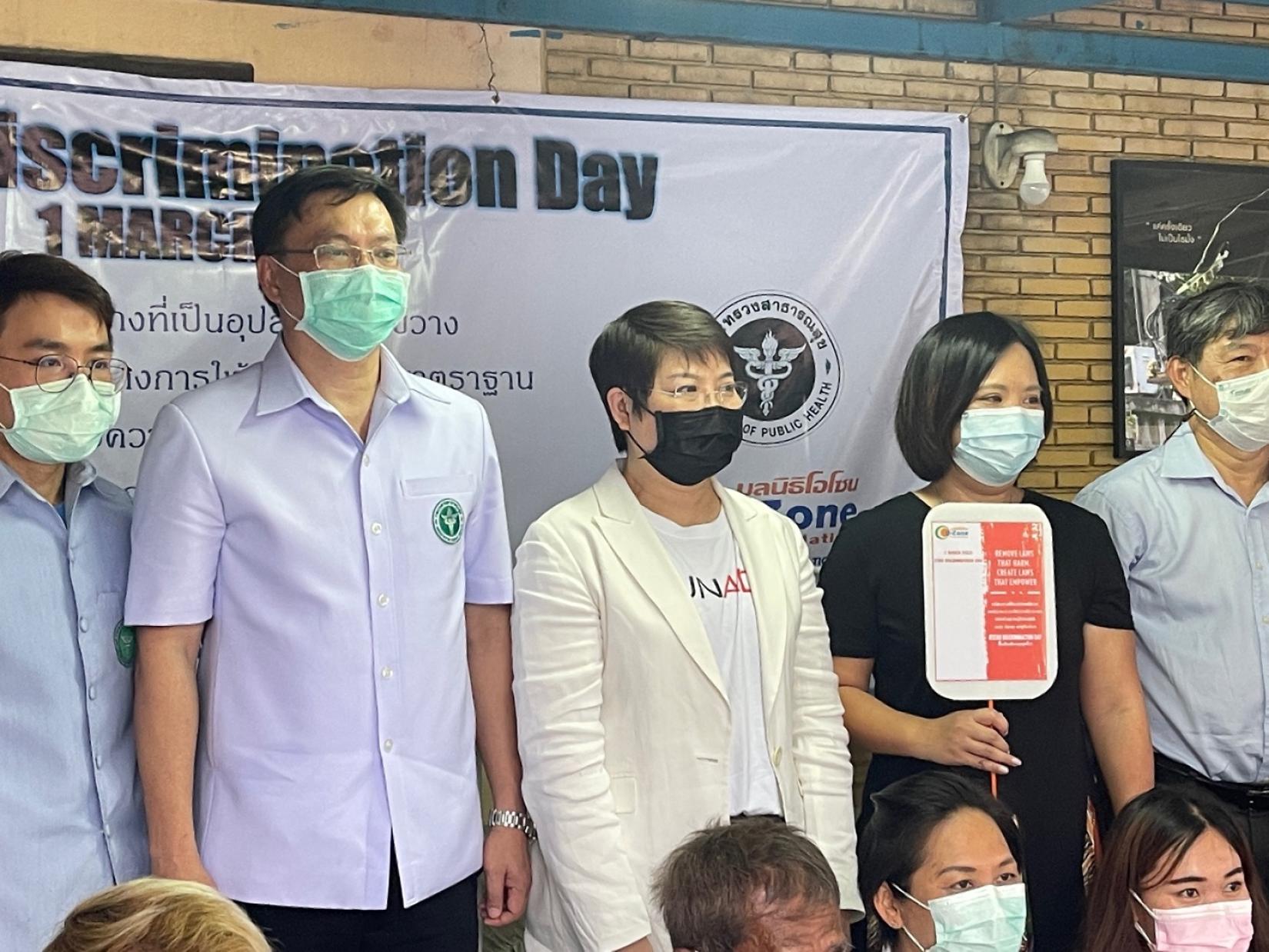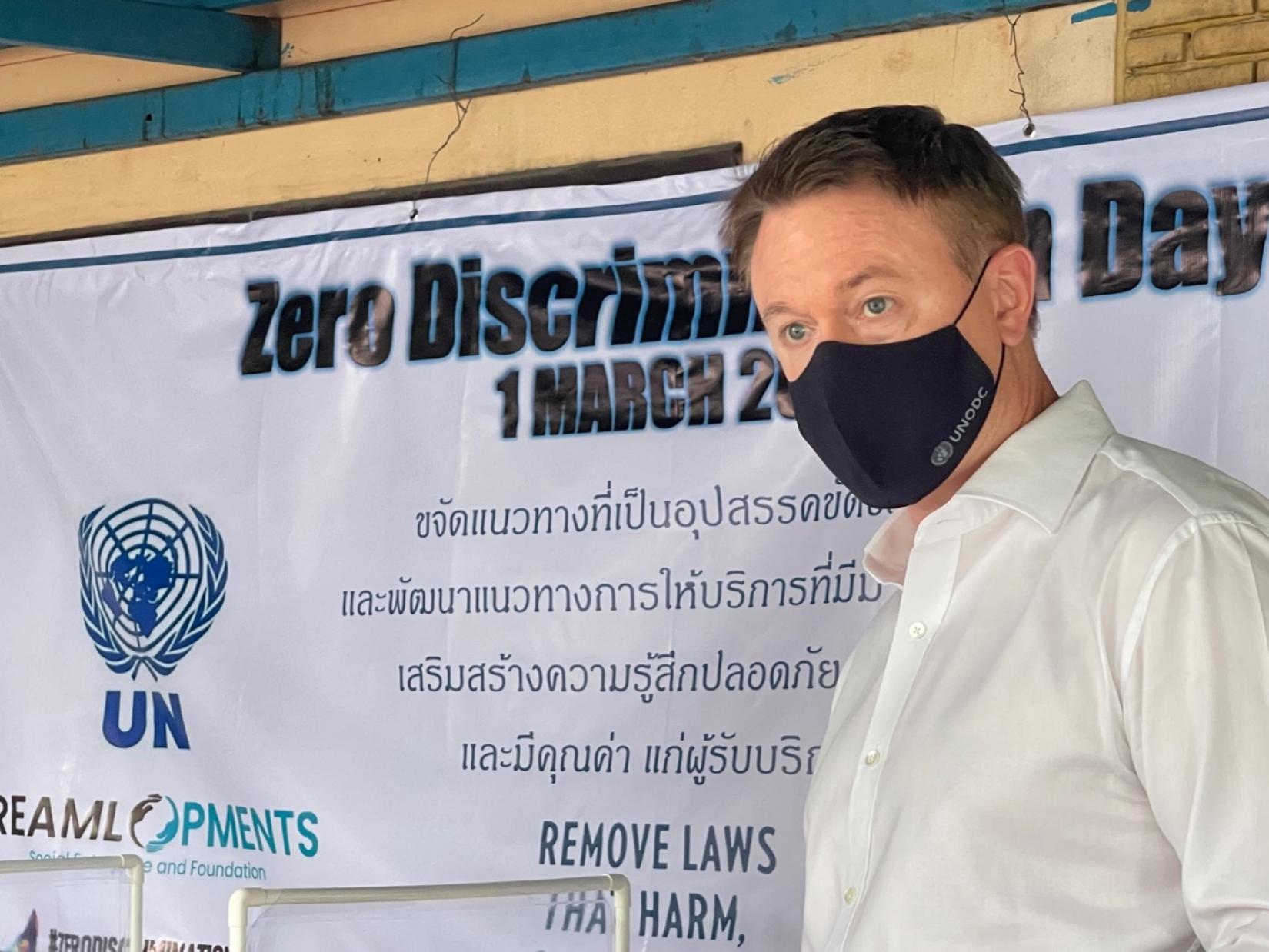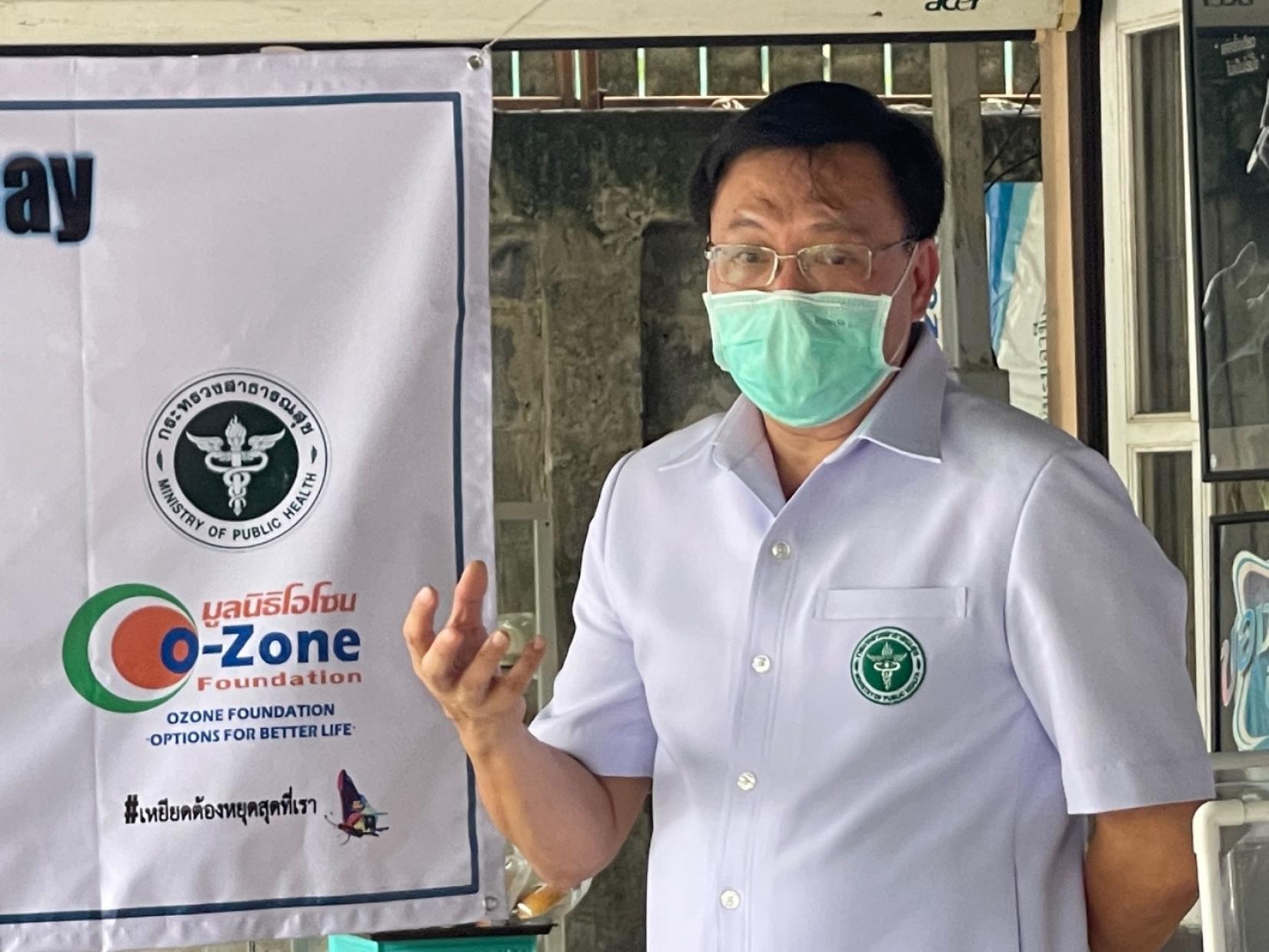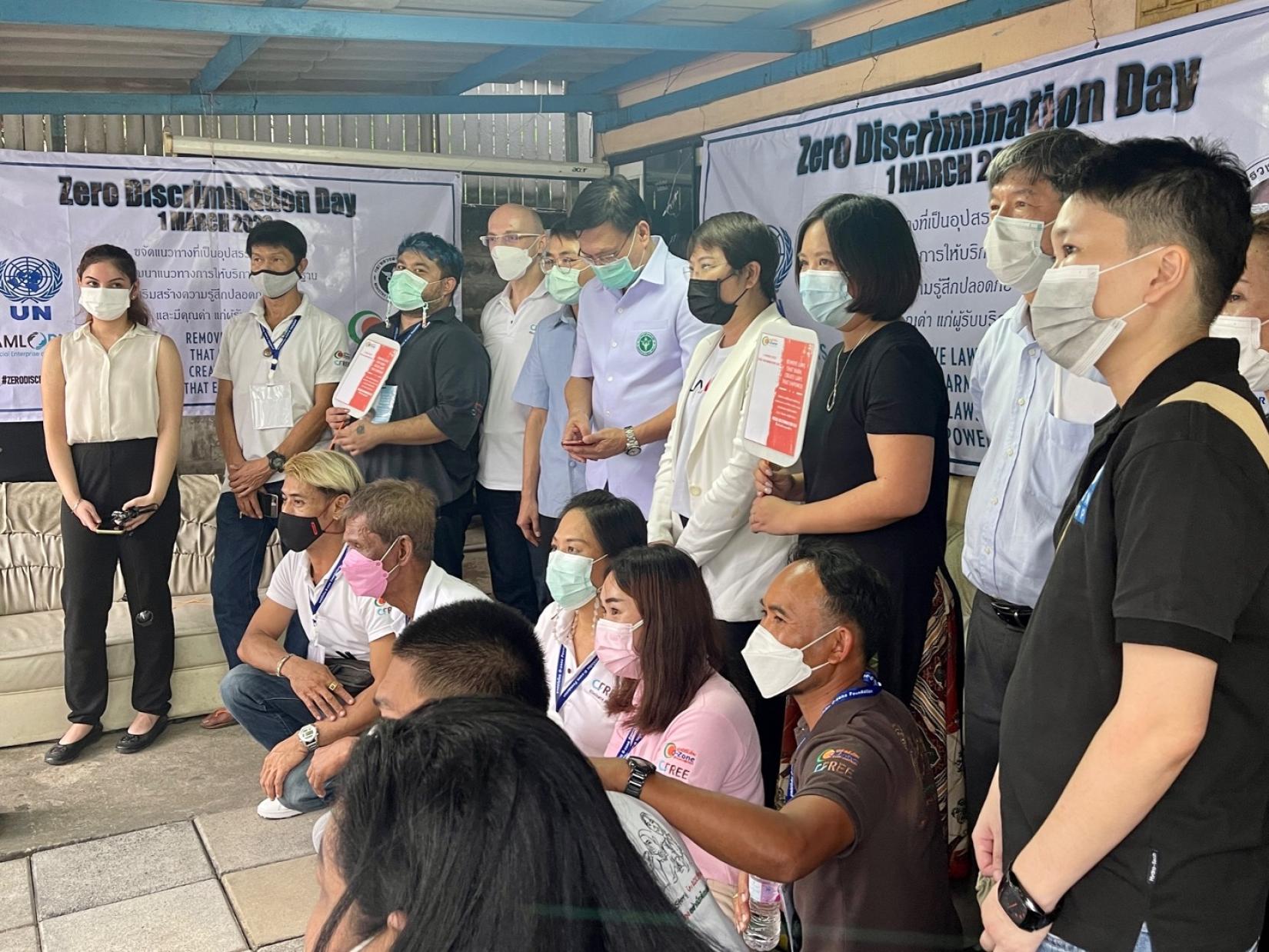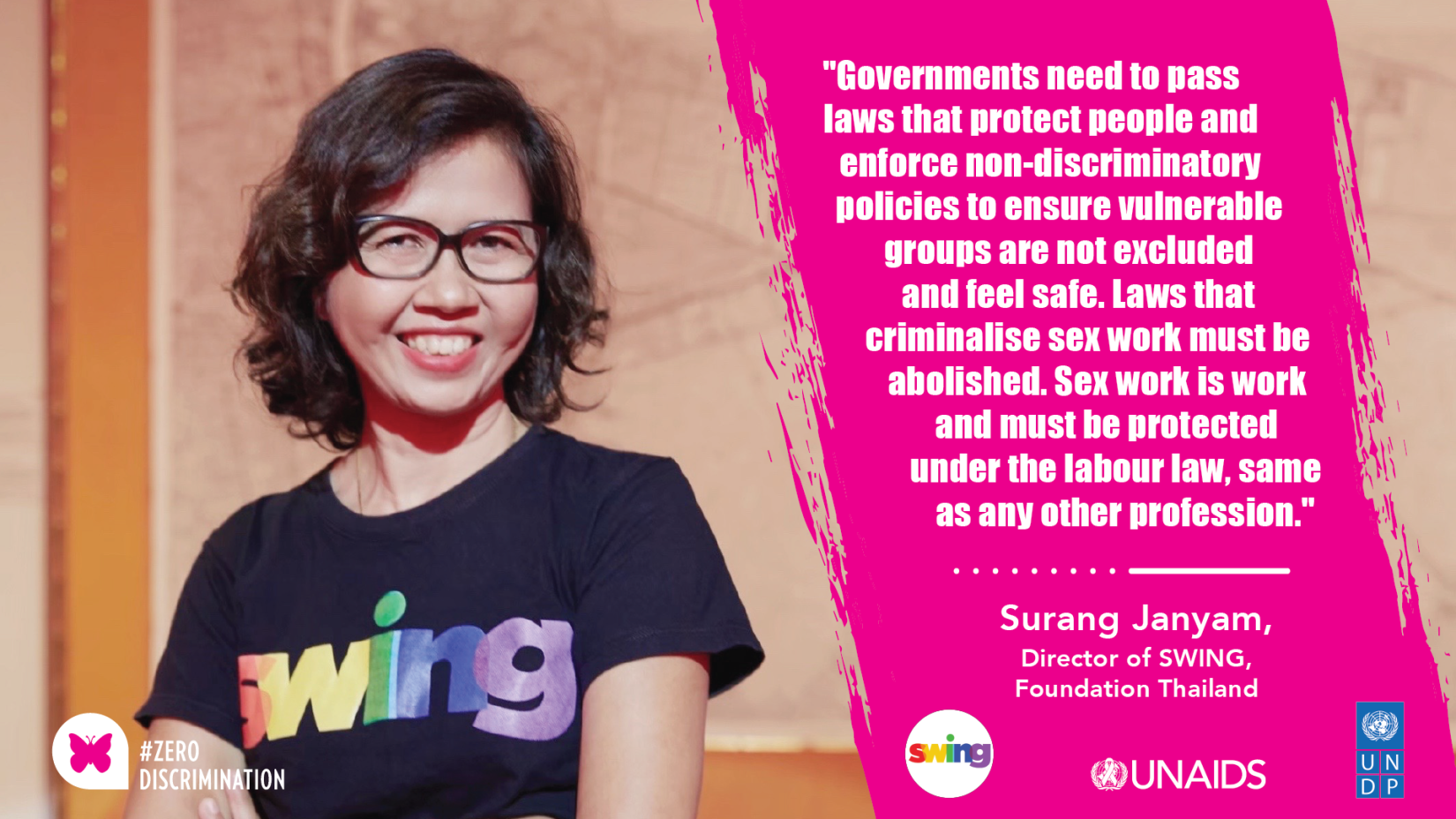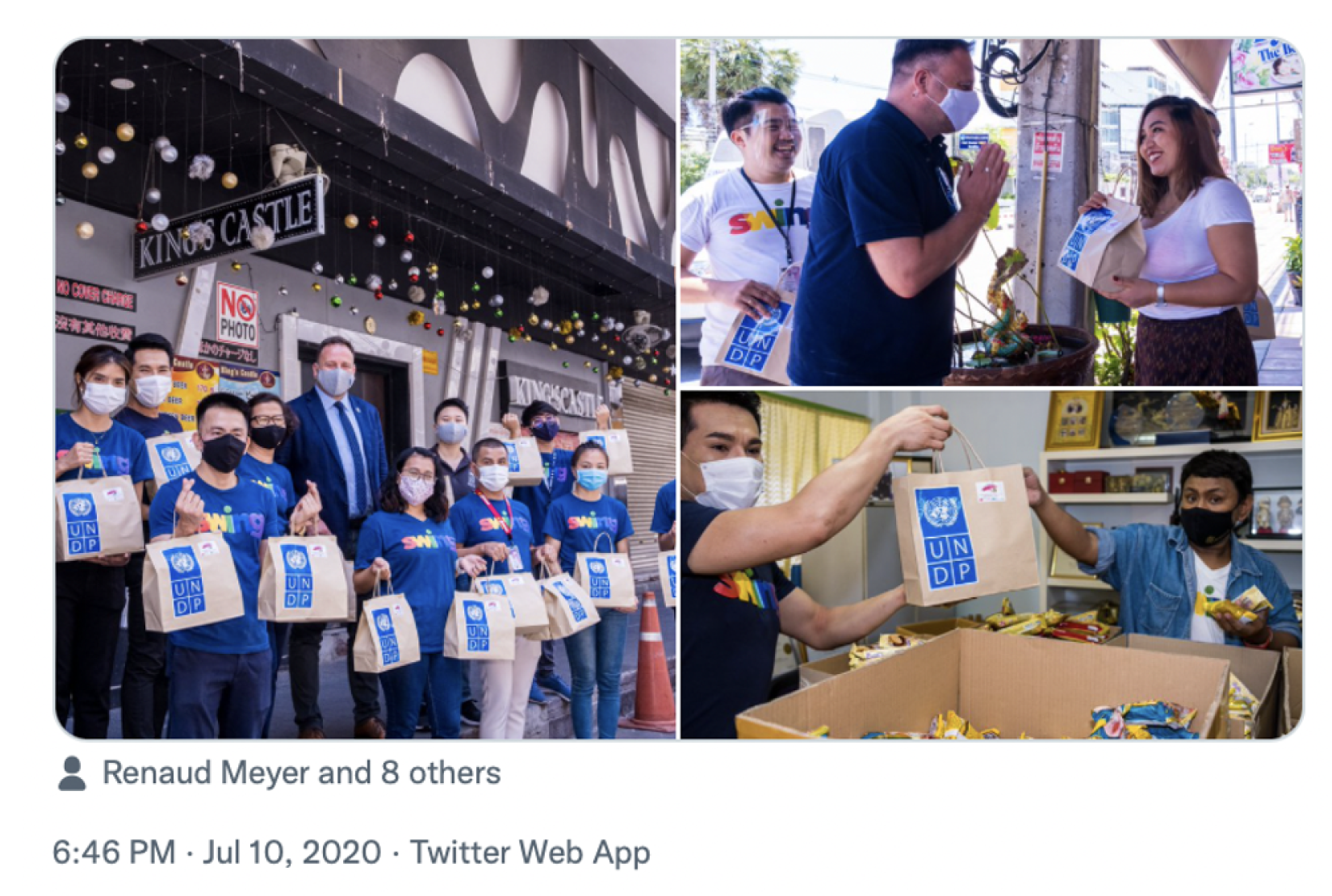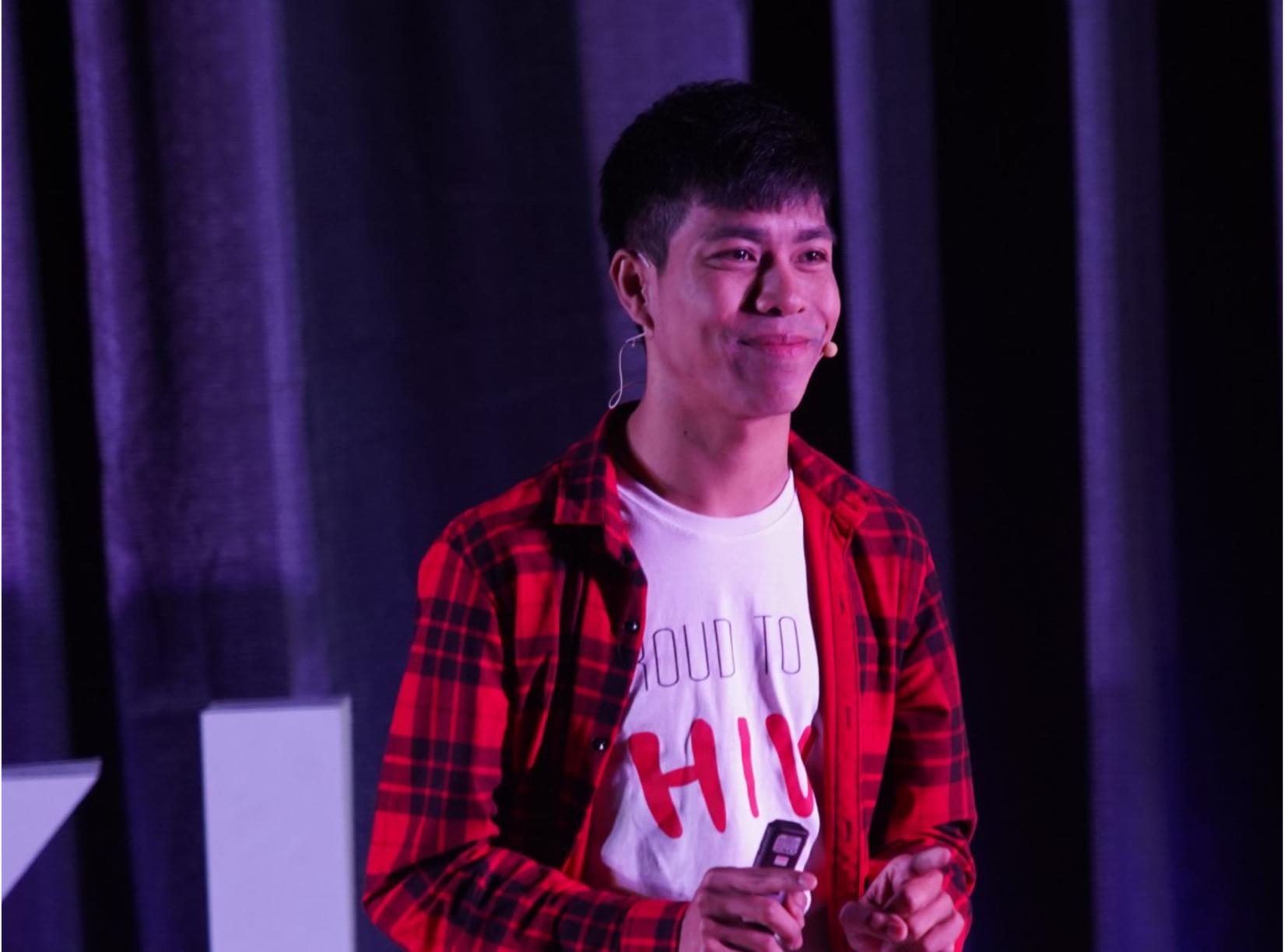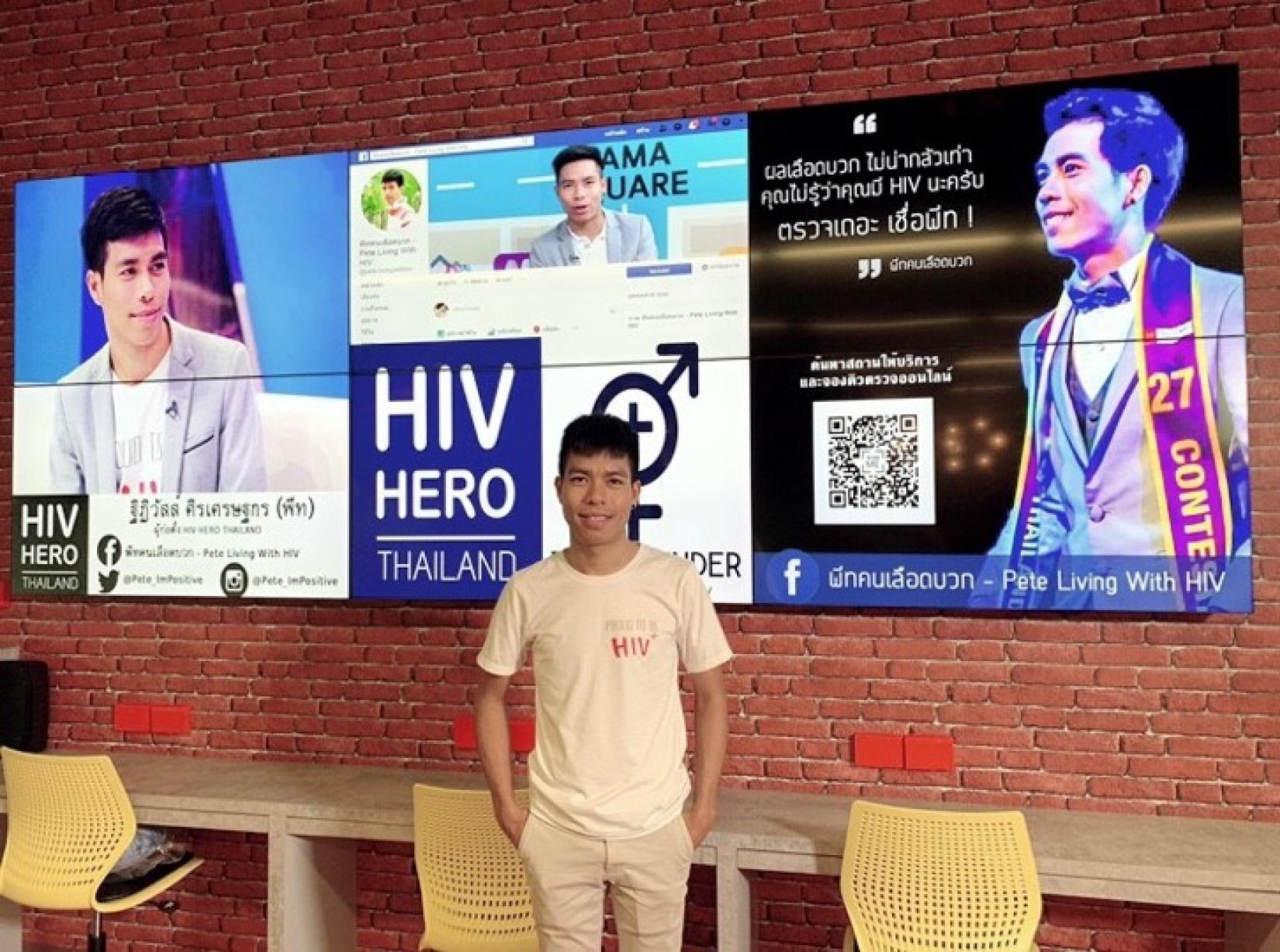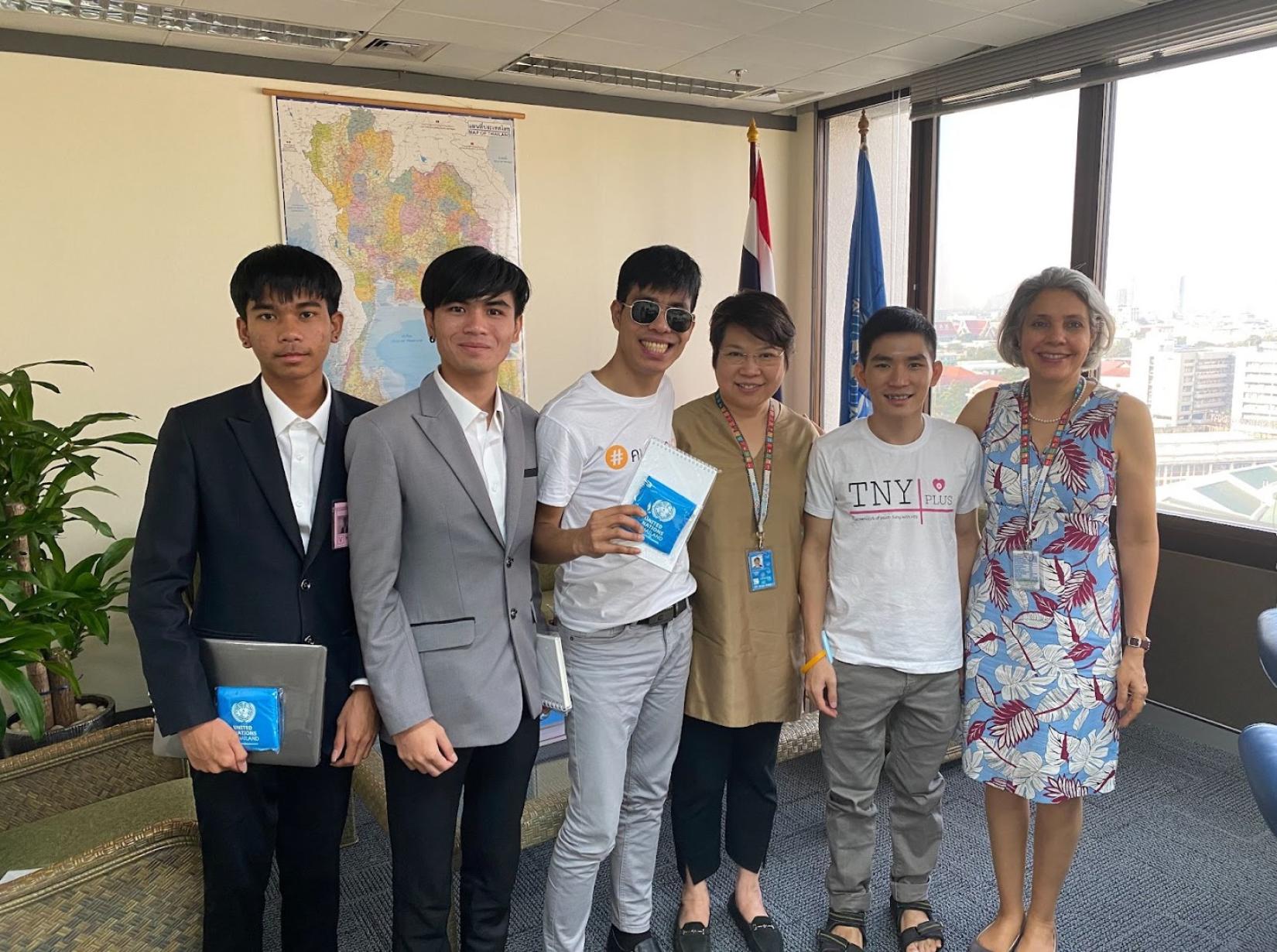What it’s like to be an (HIV) positive CEO; barred by the judicial HIV ban; harvesting against hunger and AIDS in rural Thailand; a teacher’s decade-long service to students with HIV; or an innovative partnership delivering HIV/AIDS care in communities – these are just some examples of courage, inclusion, and important transformations that are helping to tackle stigma and discrimination in Thai society, which often have been led by young people.
A few years back, “Pea,” a 22-year-old law student, had too asked himself if he might ever be able to achieve his lifelong dream of becoming a judge–only because his blood carries this virus.
“When I think about it, I cry sometimes. If this is really how it works, there’s nothing I can do,” he says. “Many people living with HIV have been asked to leave their jobs after getting a blood test. There have been lawsuits, and they’ve actually won, but it didn’t get them their jobs back.”
Although the criteria for achieving a judicial posting does not explicitly require a blood test, the application process does require a health certificate that requires the test. The practice is prevalent, especially among judicial agencies, which has set a rule demanding applicants to reveal their HIV test results in the process.
“Everyone is equal, regardless of gender or nationality. Suppose it doesn’t affect your ability to work. In that case, it shouldn’t be used as a job criterion,” he insists passionately and hopes that his story can help lead to change in the longstanding, prejudiced employment culture that requires a blood test from job applicants, specifically designed to screen out people who are living with HIV.
“This world is built for everyone,” he says, that discrimination must stop, not only in judicial agencies but in every part of society. “No one should suffer from discrimination. Society should become a better place to live because there will then always be some space in this world for everybody.”
Since 2020, The Thai Network of Youth Living with HIV (TNY+), with support from UNICEF Thailand, has been promoting key messages around HIV positivity, acceptance, reduction of stigma, and discrimination on social media. Their recent social media campaign, involving a video series has already been viewed more than 700,000 times, which addresses the misconceptions about HIV and shows how people can live positively with HIV. It documents the lives and struggles of people living with HIV and people around them, from students, teachers and village chiefs, to business owners and community health volunteers. It highlights that discrimination against people living with HIV comes from fear, not fact.
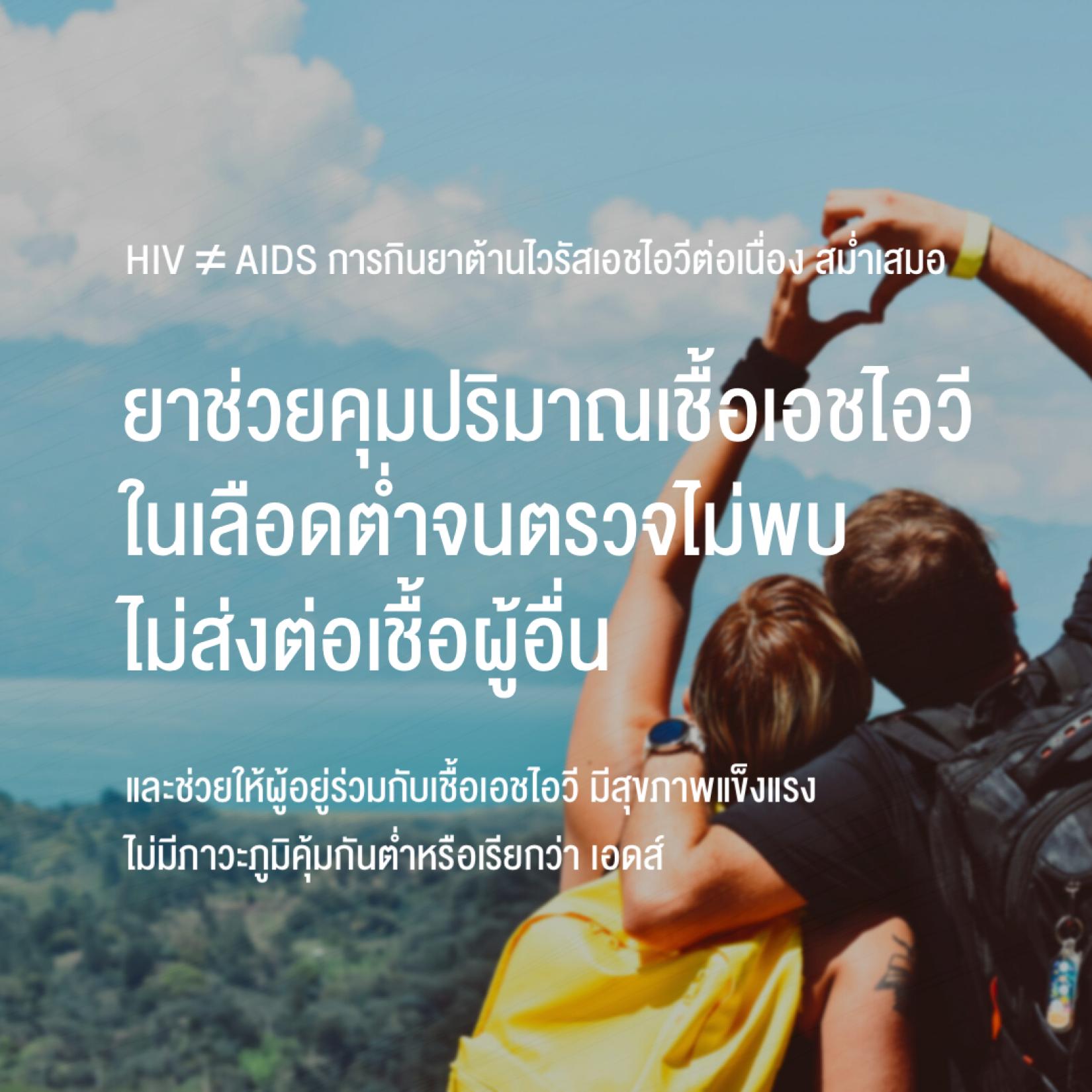
|
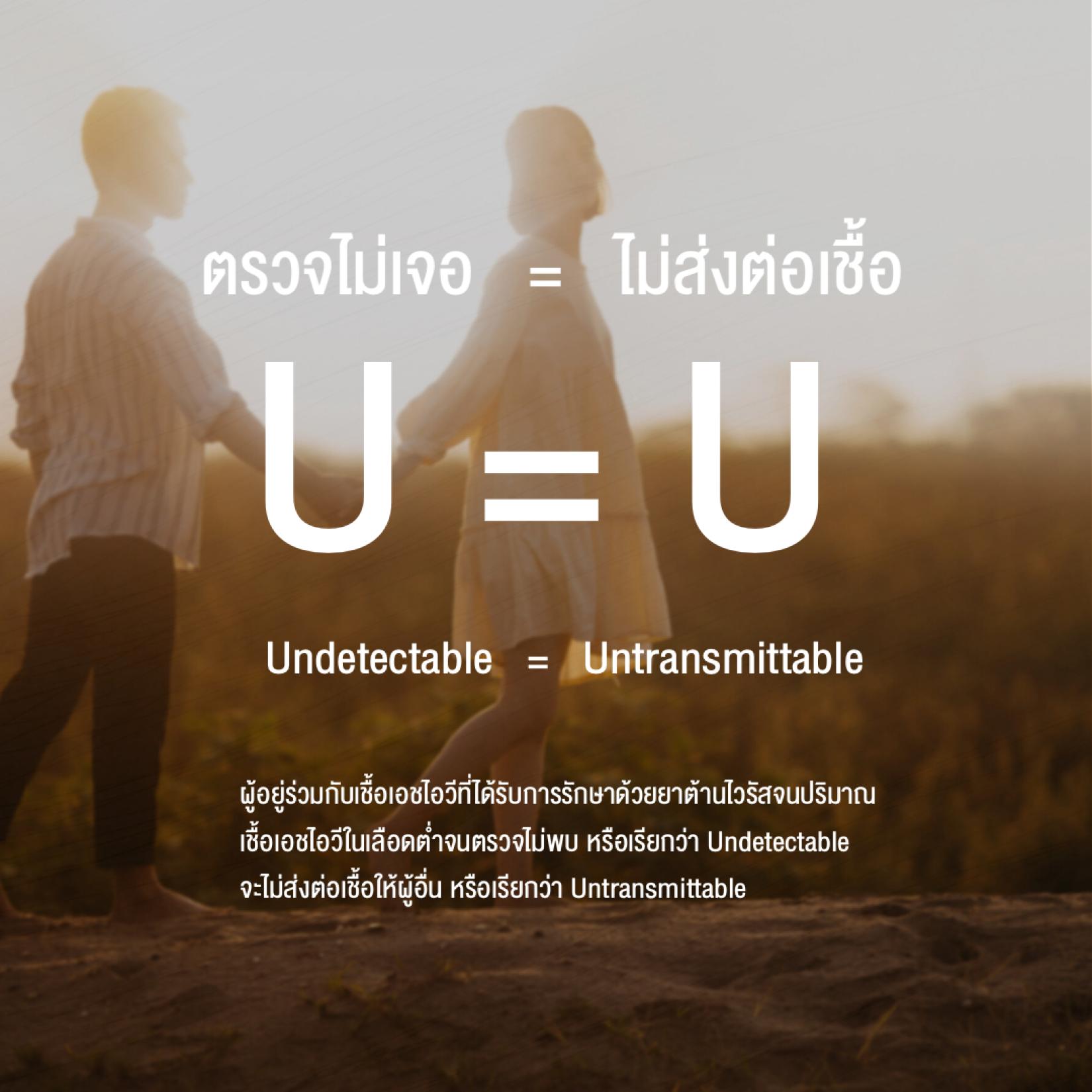
|

Read more about Pea’s story on The Isaan Record and the social media campaign by TNY+ and UNICEF Thailand.
This year’s Zero Discrimination Day will be an opportunity to focus on the urgent need to “Remove laws that harm, create laws that empower.” Such laws or biased norms that continue to persist, include laws on sex work, same-sex sexual relations, the use or possession of drugs for personal use and the non-disclosure, exposure or transmission of HIV, that result in people being treated differently, excluded from essential services or being subject to undue restrictions on how they live their lives, simply because of who they are, their sexuality, their physical or invisible disabilities, what they do or who they love. Read more and see how you can take action for more inclusive societies today: https://www.unaids.org/en/2022-zero-discrimination-day
UNAIDS, the Joint UN Programme on HIV/AIDS (UNAIDS), is taking the lead to mark the Day, preparing a concept note, and digital campaign for this year’s commemoration.
Compiled and edited by the UN Resident Coordinator Office in Thailand, with much appreciation to the contribution from UN country team colleagues, including from UNAIDS, UNDP Thailand, UNICEF Thailand, UNODC Regional Office for Southeast Asia and the Pacific, other partner organizations, where the materials that inspired this article were originally published.

